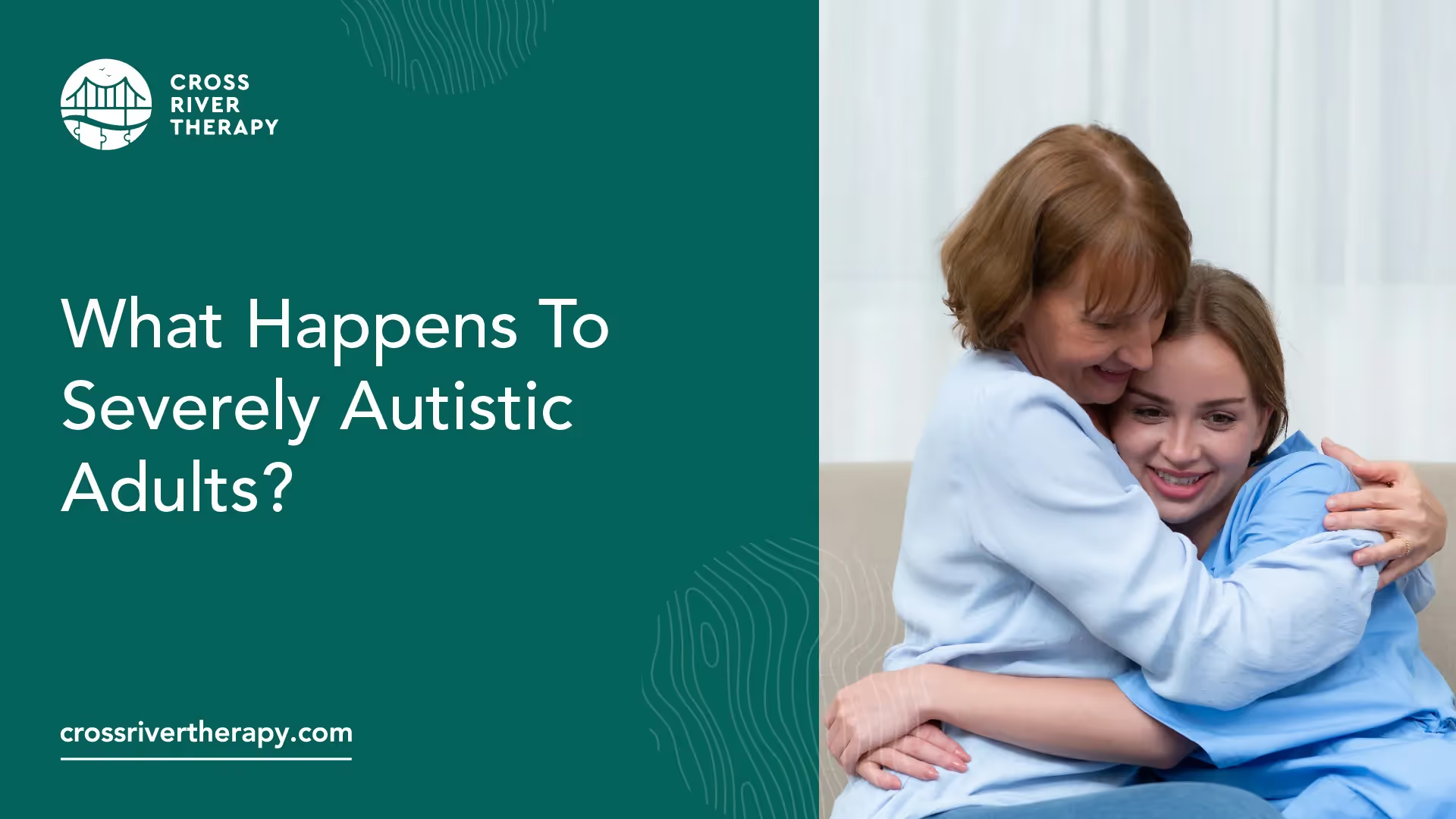What Happens To Severely Autistic Adults?
Today you’ll learn what happens to severely autistic adults as they get older + how to prepare them for adulthood.
What Happens To Severely Autistic Adults?

With ASD, there is a wide range of abilities that parents have to learn to deal with, and it is important to understand the range of disability that comes with your child's disability.
For autistic adults that do not have anyone to look out for them, their lives can be extremely difficult to manage.
What happens to these severely autistic adults depends on a variety of factors:
- Do you have finances?
- Who is charged to make decisions for them?
- Where do they live?
- What source of insurance do they have?
All of these factors can contribute to the lives of severely autistic adults, and they should be considered early on to ensure that they can continue living life to their fullest even when their parent or caregiver has passed away.
It will help to ensure that they do not slip through the cracks of society, where anything could happen.
What Happens When My Autistic Child Turns 18?
Once your child with autism turns 18, some things might change but these things all depend on your child and your situation. Unlike a child without autism, many children who have autism still need extensive care and medical treatments after they turn 18.
However, because of their age, it might feel like a huge weight has been put onto your shoulders on top of everything else you have to deal with.
However, some of this can be avoided by making sure that you take the proper steps leading up to this point.
If you haven't already gotten your child on SSI or SSID, this would be an excellent time to get this started. It can help with the financial costs that come with taking care of an adult with autism.
If your child is capable of working, you could get them assistance in finding work and begin working on their independence, but if they are not capable of doing so, then the financial assistance can also lead to medical assistance, which can be crucial to preparing your child with autism to survive after you have passed away.
What Happens to Autistic Adults When Parents Die?
The loss of a parent at any age for anyone is a difficult time, but when the parent has an autistic child, regardless of their age, the loss can be devastating. When making plans for your family, you must take into consideration your child's needs and capabilities because every family is different.
Some might think that financial efforts are the only thing that parents of autistic adults have to consider, but this is not true.
The emotional ramifications of losing a parent for an autistic person can hinder them and even set them back emotionally if things are not handled carefully.
The best way for you to keep this from happening or at least lower the blow to your child is to make sure you have everything set up for them in the event of your death, but this isn't just financially.
Many parents of autistic children hold their children close, but it is important to make sure they have a supportive network of friends, family, and professionals outside the home that are capable of helping them when they die.
First, you need to make sure that you have financial benefits set up for your child. Social Security Disability Benefits can be set up for people who have autism, which will provide them with some income, especially if they are not capable of working due to their autism.
Next, you want to make sure that their medical needs will be handled. Medicaid is an option for people who are disabled, but if you have some other form of health care already set up for your autistic child, you should keep both because not all health professionals accept Medicaid.
Then, you will want to make sure that there is somewhere for your child to go.
This could be anything from a group home for adults with autism, supported living or home care, or skilled nursing facilities. This step will depend entirely on planning and the financial situation of the family and the individual with autism.
All in all, it is important to think ahead and make sure everything is in place for the time when you pass on. Nothing can replace you in your child's life, whether they are two or forty, but you taking the time to make sure everything is in place for them can help to lessen the blow.



